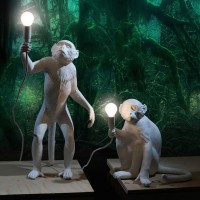
Irony is a serious thing
5 May 2016
13 October 2016
Milan’s Mudec Museum has dedicated its spaces to the exhibition “Homo sapiens. Le nuove storie dell’evoluzione umana” (New stories of human evolution), created by Luigi Cavalli Sforza and curated by Telmo Pievani. A room on the ground floor has been dedicated to 26 transparent Kartell chairs, decorated by the Maori artist, Nuku. The artist was born to a Maori mother and Scottish-German father in 1964, and grew up amongst family and tribal members in New Zealand. He was surrounded by oral tradition, taking part in funerary ceremonies, ritual dances and listening to tribal history.
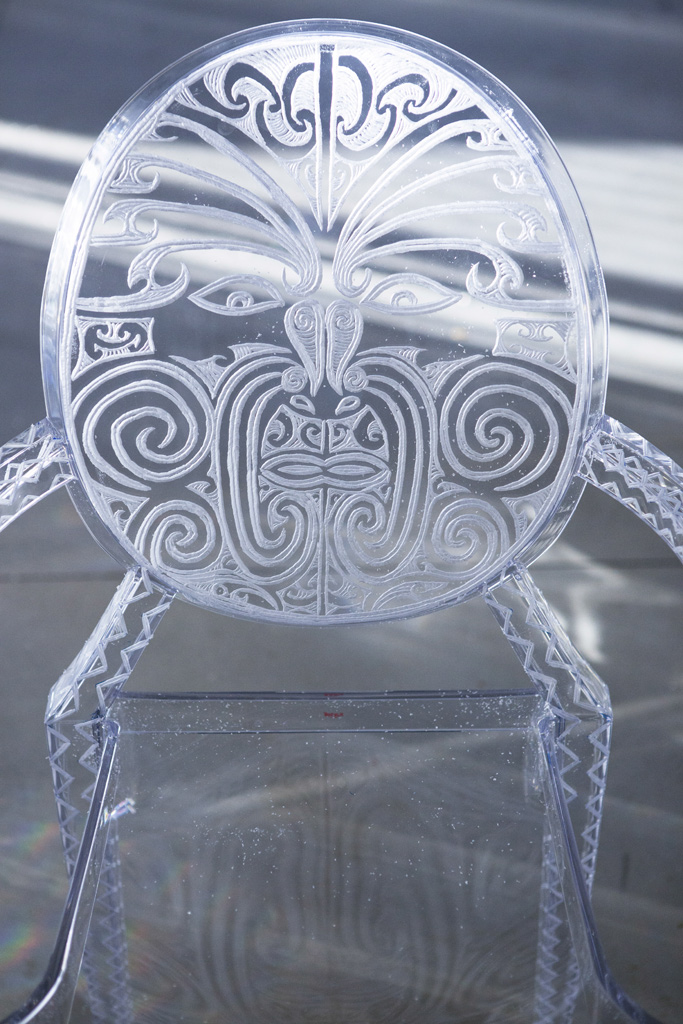
The Maori culture has profoundly influenced his thinking and consequently, his art. He is self-taught, and learned through working stone, wood, bones and shells, then moving on to plexiglass and polystyrene. His work spans from amulets and jewelry, to large-scale sculptures representing Polynesian semi-gods and heroes. He defines himself as a Manaia, or messenger between the ancient world and the current one. After marrying a Frenchwoman, he first encountered Kartell in Paris while strolling down Boulevard Saint Germain.
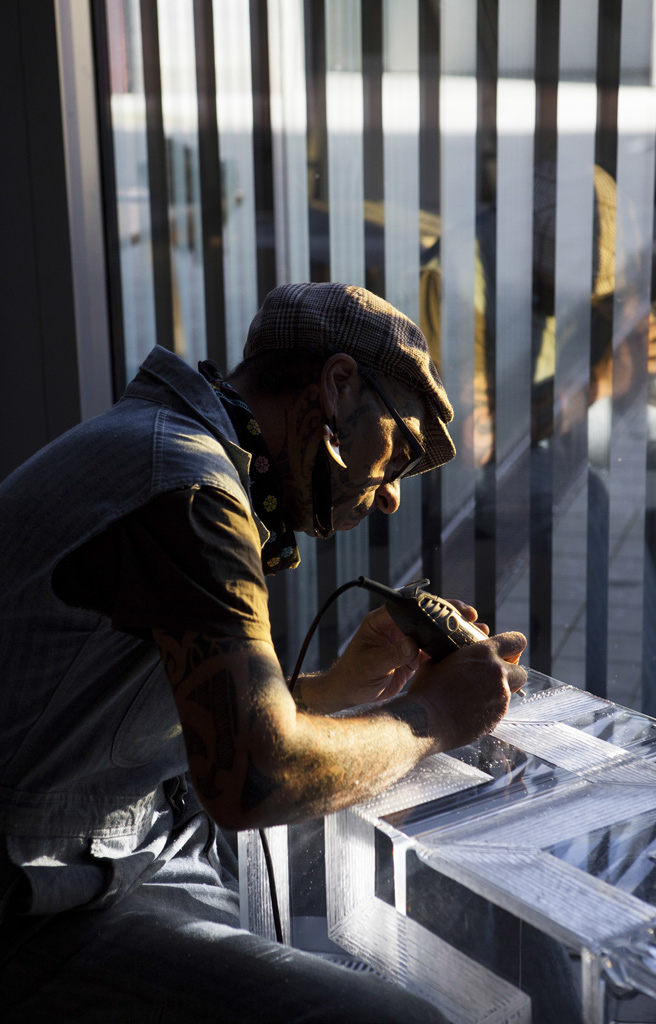
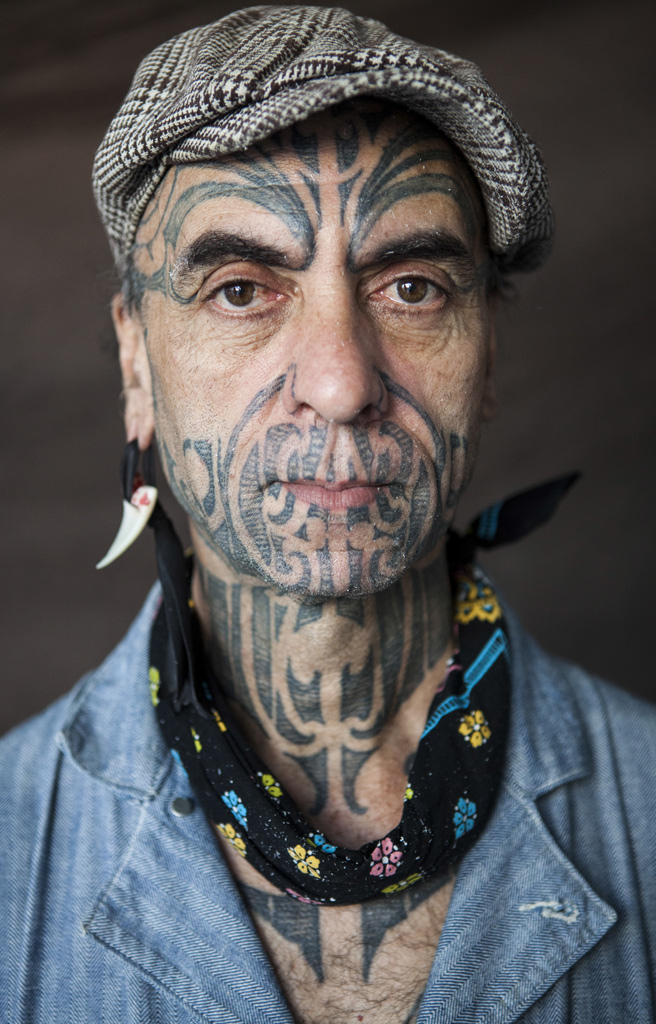
It was love at first sight; the company donated 26 pieces, allowing Nuku to engrave and decorate them. The installation is called “Salone Ducale”, and represents a continuation of the journey his ancestors took to Italy, reflecting on the reciprocal influences of Maori tradition and Italian design. Nuku’s manual incisions give Kartell’s transparent plastic material a surprising regal identity, mutating its typical associated connotations.
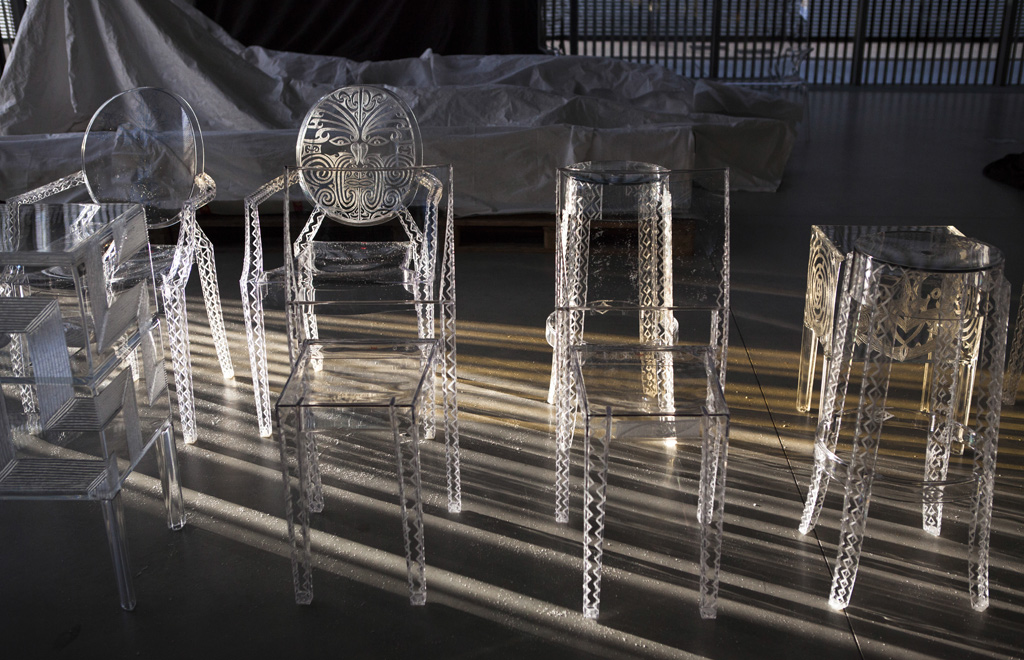

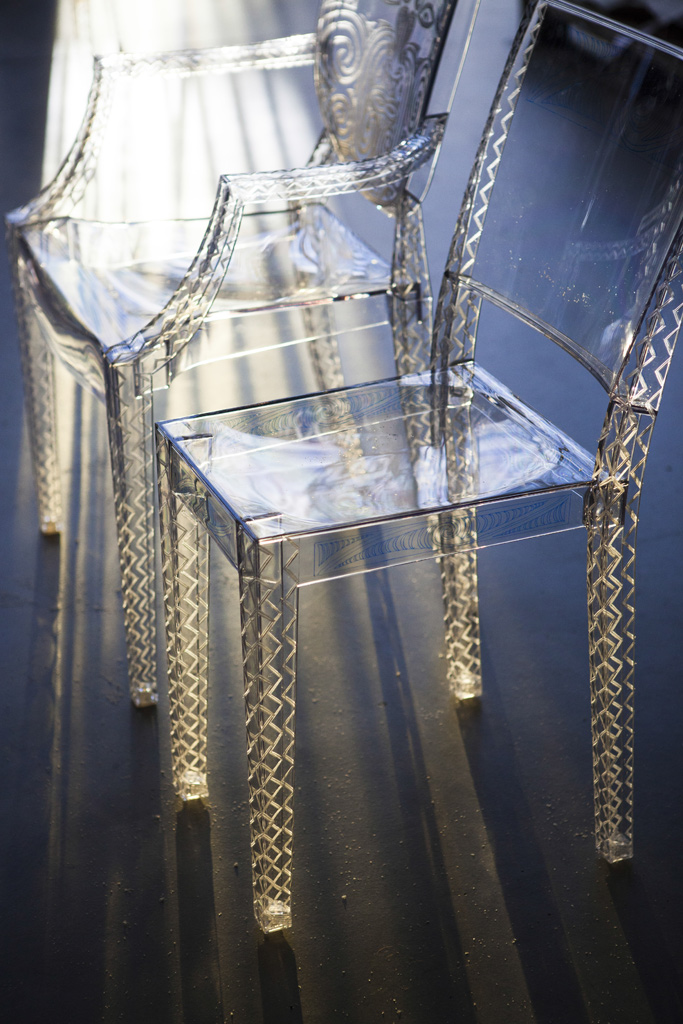
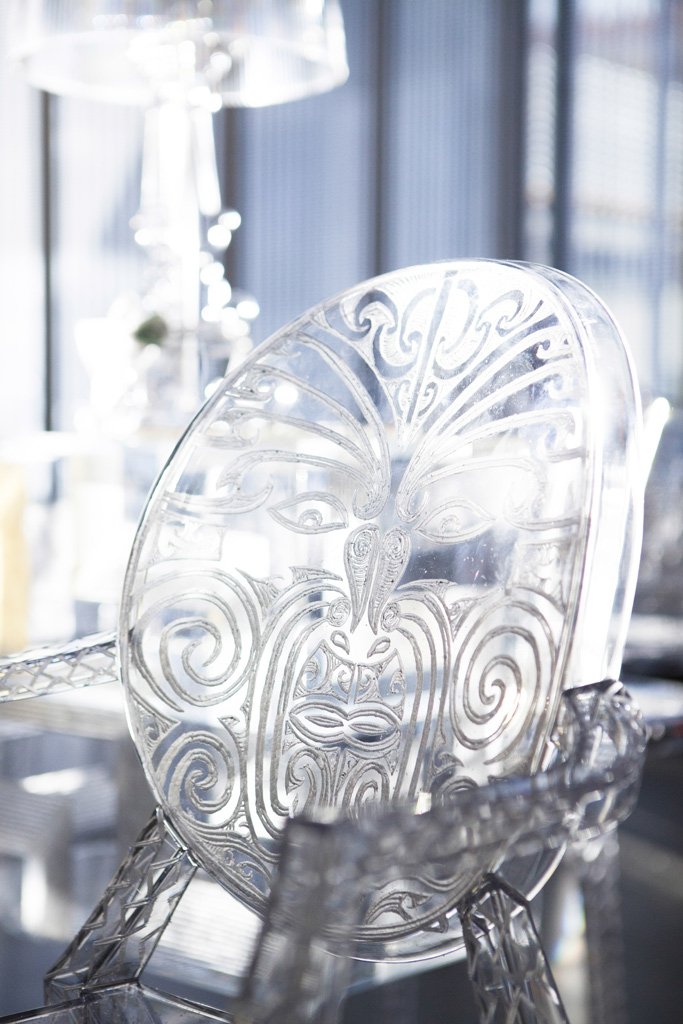

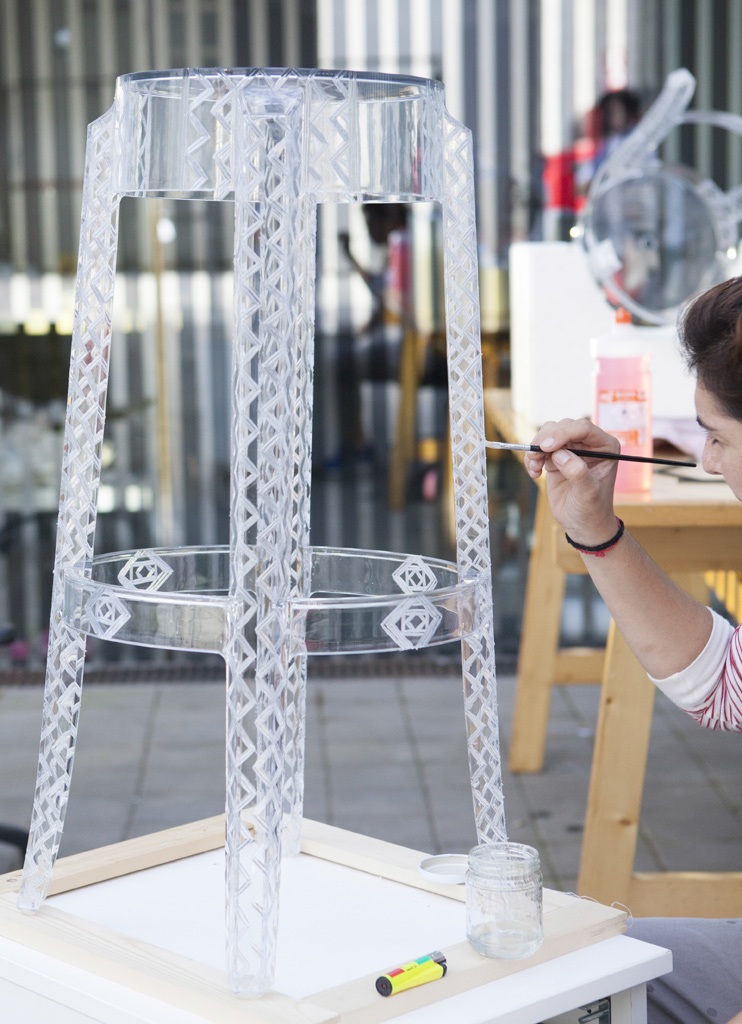
WHERE: Via Tortona, 56, 20144 Milano
Milan’s Mudec Museum has dedicated its spaces to the exhibition “Homo sapiens. Le nuove storie dell’evoluzione umana” (New stories of human evolution), created by Luigi Cavalli Sforza and curated by Telmo Pievani. A room on the ground floor has been dedicated to 26 transparent Kartell chairs, decorated by the Maori artist, Nuku. The artist was born to a Maori mother and Scottish-German father in 1964, and grew up amongst family and tribal members in New Zealand. He was surrounded by oral tradition, taking part in funerary ceremonies, ritual dances and listening to tribal history. The Maori culture has profoundly influenced his thinking and consequently, his art. He is self-taught, and learned through working stone, wood, bones and shells, then moving on to plexiglass and polystyrene. His work spans from amulets and jewelry, to large-scale sculptures representing Polynesian semi-gods and heroes. He defines himself as a Manaia, or messenger between the ancient world and the current one. After marrying a Frenchwoman, he first encountered Kartell in Paris while strolling down Boulevard Saint Germain. It was love at first sight; the company donated 26 pieces, allowing Nuku to engrave and decorate them. The installation is called “Salone Ducale”, and represents a continuation of the journey his ancestors took to Italy, reflecting on the reciprocal influences of Maori tradition and Italian design. Nuku’s manual incisions give Kartell’s transparent plastic material a surprising regal identity, mutating its typical associated connotations.

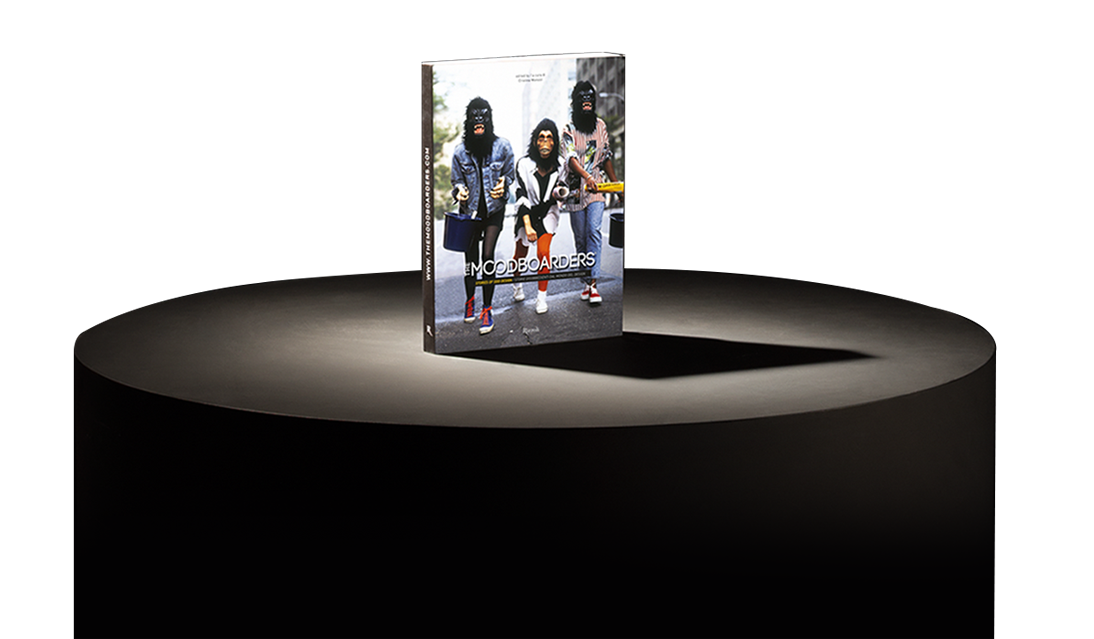

The Moodboarders is a glance into the design world, which, in all of its facets, captures the extraordinary even within the routine. It is a measure of the times. It is an antenna sensitive enough to pick-up on budding trends, emerging talents and neglected aesthetics. Instead of essays, we use brief tales to tune into the rhythm of our world. We travelled for a year without stopping, and seeing as the memory of this journey has not faded, we have chosen to edit a printed copy. We eliminated anything episodic, ephemeral or fading, maintaining a variety of articles that flow, without losing the element of surprise, the events caught taking place, and the creations having just bloomed.